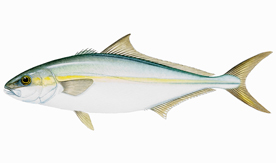
UMaine’s CCAR Assists in Development of Recirculating Aquaculture Technology
Chefs often go to the docks to select fresh catch to prepare their evening seafood dinners.
In the near future, area chefs and the public may routinely be getting fresh, sustainable fish from a Maine-based indoor fish farm.
A number of locals are working toward that future, including middle-school students, educators, marine scientists, businesspeople, funders, and a fisherman who helps run a cooperative. Participants involved in this cutting-edge indoor fish farming technology project will gather at Herring Gut Learning Center in Port Clyde on Thursday, Feb. 6.
Following are snapshots of the participating organizations:
School of Roots at the Herring Gut Learning Center, Port Clyde, Maine
The School of Roots, a student-run aquaponics business established in 2010, is managed by middle-school youth in RSU 13’s Alternative Education Program at the Herring Gut Learning Center. The students learn academic concepts while developing, marketing and selling products to grocers, restaurants and community members. They previously test-marketed and sold black sea bass produced by Acadia Harvest and are now premarketing Acadia Harvest’s California yellowtail. Feb. 6, the students will help harvest the fish; they plan to have them all sold within 48 hours of harvest.
For more information on Herring Gut Learning Center, visit herringgut.org.
Acadia Harvest Inc., Brunswick, Maine
Acadia Harvest was formed in early 2011 as RAS Corporation. Acadia Harvest (AHI) is working at the University of Maine’s Center for Cooperative Aquaculture Research in Franklin, Maine, to develop new technologies in land-based, indoor sustainable fish farming, known as recirculating aquaculture systems. Principals Chris Heinig (CEO), Tap Pryor (chief scientist) and Ed Robinson (chairman) have been growing and test marketing high-quality, nutritious, affordable fish, both California yellowtail and black sea bass. By 2016, they anticipate having their first commercial-scale production facility in Maine to initially produce 250 to 450 metric tons of fish annually. With a SBIR Phase I grant from the National Science Foundation, the company has experimented with marine worms and various forms of algae in the recirculating aquaculture system to achieve an environmentally friendly “zero-waste” facility. AHI has a purchase option on a parcel of land in Gouldsboro, on the site of a former naval facility at Corea. The construction of a first-phase production facility would involve a multi-million dollar investment and the creation of 10–15 new jobs for the area.
University of Maine’s Center for Cooperative Aquaculture Research, Franklin, Maine
UMaine’s Center for Cooperative Aquaculture Research, directed by Nick Brown, is a business incubation facility and a center for applied aquaculture research, development and demonstration. CCAR is assisting Acadia Harvest in its development of recirculating aquaculture technology by providing sophisticated aquaculture business incubation facilities, recirculation technology and marine research expertise. CCAR also will provide juvenile fish from its state-of-the-art hatchery for Acadia Harvest.
For more information about UMaine’s CCAR, visit www.ccar.um.maine.edu/index.html.
Port Clyde Fresh Catch: A Maine Fishermen’s Cooperative, Port Clyde, Maine
Port Clyde Fresh Catch is the country’s first community-supported fishery. It’s part of a movement seeking to do for small-scale local fishermen what community-supported agriculture does for farmers. On Feb. 6, Glen Libby and the Port Clyde team will process the California yellowtail grown by Acadia Harvest.
For more information about Port Clyde Fresh Catch, visit portclydefreshcatch.com.
Both Maine Technology Institute and Coastal Enterprises, Inc. have provided funding that has been instrumental in Acadia Harvest’s development of indoor fish farming technology.
Maine Technology Institute (MTI), Brunswick, Maine
The Maine Technology Institute is a private nonprofit organization chartered by the state to “invest in innovation” in seven key sectors. MTI funds entrepreneurs, growing businesses and research institutions engaged in research and development of innovative technologies in Aquaculture & Marine, Agriculture & Forestry, Biotechnology, Precision Manufacturing, Advanced Composites, Information Technology and Environmental Technology. In addition to a competitive grant and loan program, MTI also makes equity investments in promising technologies. Since its founding in 1999, MTI has invested more than $178 million in the Maine economy, bringing in more than $250 million of additional investment to Maine, and creating high-quality jobs and long-term value for the state.
For more information about MTI, visit mainetechnology.org.
Coastal Enterprises, Inc. (CEI), Wiscasset, Maine
CEI, a 501(c)(3) private, nonprofit Community Development Corporation (CDC) and Community Development Financial Institution (CDFI), is among the leading rural finance entities in the Northeast. Founded in 1977, and headquartered in Maine, CEI has provided $1.05 billion in loans and investments, and business and housing counseling services to more than 43,082 people, helping to create economically and environmentally healthy communities in New England, upstate New York, and throughout rural America.
For more information about CEI, visit ceimaine.org.
Contact: Beth Staples, 207.581.3777
